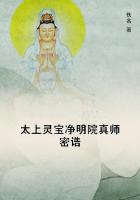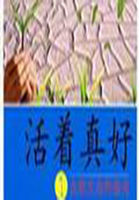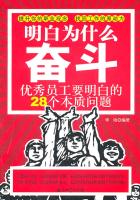It would have been easy for Clive, during his second administration in Bengal, to accumulate riches such as no subject in Europe possessed. He might indeed, without subjecting the rich inhabitants of the province to any pressure beyond that to which their mildest rulers had accustomed them, have received presents to the amount of three hundred thousand pounds a year. The neighbouring princes would gladly have paid any price for his favour. But he appears to have strictly adhered to the rules which he had laid down for the guidance of others. The Rajah of Benares offered him diamonds of great value. The Nabob of Oude pressed him to accept a large sum of money and a casket of costly jewels. Clive courteously, but peremptorily refused; and it should be observed that he made no merit of his refusal, and that the facts did not come to light till after his death. He kept an exact account of his salary, of his share of the profits accruing from the trade in salt, and of those presents which, according to the fashion of the East, it would be churlish to refuse. Out of the sum arising from these resources, he defrayed the expenses of his situation. The surplus he divided among a few attached friends who had accompanied him to India. He always boasted, and as far as we can judge, he boasted with truth, that this last administration diminished instead of increasing his fortune.
One large sum indeed he accepted. Meer Jaffier had left him by will above sixty thousand pounds sterling in specie and jewels: and the rules which had been recently laid down extended only to presents from the living, and did not affect legacies from the dead. Clive took the money, but not for himself. He made the whole over to the Company, in trust for officers and soldiers invalided in their service. The fund which still bears his name owes its origin to this princely donation.
After a stay of eighteen months, the state of his health made it necessary for him to return to Europe. At the close of January 1767, he quitted for the last time the country, on whose destinies he had exercised so mighty an influence.
His second return from Bengal was not, like his first, greeted by the acclamations of his countrymen. Numerous causes were already at work which embittered the remaining years of his life, and hurried him to an untimely grave. His old enemies at the India House were still powerful and active; and they had been reinforced by a large band of allies whose violence far exceeded their own. The whole crew of pilferers and oppressors from whom he had rescued Bengal persecuted him with the implacable rancour which belongs to such abject natures. Many of them even invested their property in India stock, merely that they might be better able to annoy the man whose firmness had set bounds to their rapacity. Lying newspapers were set up for no purpose but to abuse him; and the temper of the public mind was then such, that these arts, which under ordinary circumstances would have been ineffectual against truth and merit produced an extraordinary impression.
The great events which had taken place in India had called into existence a new class of Englishmen, to whom their countrymen gave the name of Nabobs. These persons had generally sprung from families neither ancient nor opulent; they had generally been sent at an early age to the East; and they had there acquired large fortunes, which they had brought back to their native land.
It was natural that, not having had much opportunity of mixing with the best society, they should exhibit some of the awkwardness and some of the pomposity of upstarts. It was natural that, during their sojourn in Asia, they should have acquired some tastes and habits surprising, if not disgusting, to persons who never had quitted Europe. It was natural that, having enjoyed great consideration in the East, they should not be disposed to sink into obscurity at hom; and as they had money, and had not birth or high connection, it was natural that they should display a little obtrusively the single advantage which they possessed.
Wherever they settled there was a kind of feud between them and the old nobility and gentry, similar to that which raged in France between the farmer-general and the marquess. This enmity to the aristocracy long continued to distinguish the servants of the Company. More than twenty years after the time of which we are now speaking, Burke pronounced that among the Jacobins might he reckoned "the East Indians almost to a man, who cannot bear to find that their present importance does not bear a proportion to their wealth."
The Nabobs soon became a most unpopular class of men. Some of them had in the East displayed eminent talents, and rendered great services to the state; but at home their talents were not shown to advantage, and their services were little known. That they had sprung from obscurity, that they had acquired great wealth, that they exhibited it insolently, that they spent it extravagantly, that they raised the price of everything in their neighbourhood, from fresh eggs to rotten boroughs, that their liveries outshone those of dukes, that their coaches were finer than that of the Lord Mayor, that the examples of their large and ill-governed households corrupted half the servants in the country, that some of them, with all their magnificence, could not catch the tone of good society, but, in spite of the stud and the crowd of menials, of the plate and the Dresden china, of the venison and the Burgundy, were still low men; these were things which excited, both in the class from which they had sprung and in the class into which they attempted to force themselves, the bitter aversion which is the effect of mingled envy and contempt.















